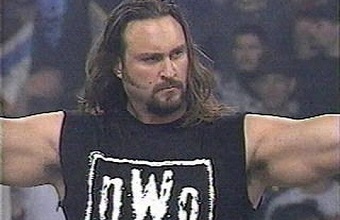Brian Keith Adams, known by his ring names “Crush” and “Kona Crush,” was born on April 14, 1964, in Kona, Hawaii. His journey in the world of professional wrestling began in the late 1980s when he signed with the World Wrestling Federation (WWF), now known as WWE. Over the years, Adams would go on to wrestle for various promotions, leaving his mark on the wrestling landscape.
Adams’ early years in the WWF saw him portraying the character “Kona Crush,” a surfer persona that resonated with fans. However, it was his later transformation into the villainous “Crush” character that showcased his versatility as a performer. As part of the infamous “Demolition” tag team and later as a singles competitor, Adams established himself as a formidable force in the wrestling world.
While Adams’ wrestling career had its share of successes, it was also marked by personal and professional challenges. Like many wrestlers of his era, he faced the physical toll of the sport, enduring injuries that often came with the territory. The demanding travel schedule, rigorous training, and the constant pressure to perform took a toll on both his body and his personal life.
Tragically, Brian Adams’ life took a tragic turn when he was found dead on August 13, 2007, at the age of 43. The circumstances surrounding his death were deeply troubling and raised questions about the toll that the wrestling lifestyle had taken on him. Adams’ death was ruled an accidental overdose of painkillers, including traces of the prescription medication “carisoprodol.”
Adams’ passing shed light on the often-overlooked challenges that wrestlers face both during their careers and in the aftermath of their time in the ring. The physically demanding nature of the sport, coupled with the pressure to maintain a certain appearance and perform at a high level, can lead to physical and emotional struggles that are not always visible to the public eye.
In the wake of his death, the wrestling community mourned the loss of a wrestler whose contributions to the industry were undeniable. Fellow wrestlers and fans shared memories of Adams’ time in the ring and the impact he had on their lives. While his life had its ups and downs, Adams left a lasting impression on those who knew him and those who admired his work.
Brian Adams’ legacy is a complex one that reflects the highs and lows of a wrestling career. His story serves as a reminder that behind the larger-than-life personas and thrilling matches lies a human being with hopes, dreams, challenges, and vulnerabilities. His untimely passing serves as a cautionary tale about the importance of addressing the physical and mental toll that the wrestling lifestyle can exact.
In the tapestry of professional wrestling history, Brian Adams’ legacy stands as a reminder of the sacrifices that wrestlers make to entertain and inspire. His story compels us to reflect on the challenges that wrestlers face, both during their careers and after they leave the ring. As fans and fellow wrestlers remember his life, they honor a man whose journey is a testament to the complexities of fame, success, and the pursuit of one’s passions in the world of professional wrestling.
